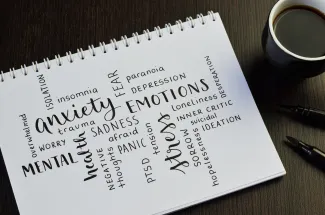
Report: California faces big shortage of bilingual mental health professionals
Click play to listen to this article.
(California News Service) One in four Californians is an immigrant and a new report showed many are refugees who may need mental health services but have trouble finding treatment.
Researchers from the California Pan-Ethnic Health Network found a pressing need for culturally-responsive behavioral health services.
Vincent Chou, community advocacy manager for the group, said many barriers can hinder access.

"These communities face distinct challenges such as trauma from displacement, stress, language barriers, and systemic discrimination," Chou outlined. "All of which contribute to why they're not really utilizing the mental health services that are available to them."
Community groups said they have seen a huge increase in demand for mental health services since the pandemic. The report also called for training on trauma-informed care for providers and county workers who assist immigrants.
Mary Anne Foo, executive director of the Orange County Asian and Pacific Islander Community Alliance, said California faces a dire shortage of bilingual, bicultural mental health providers; people who can better connect with patients.
"When they see a counselor who can speak their language, they're more apt to be able to describe what's going on with them," Foo pointed out. "Or to be able to participate fully in their care."
Ruqayya Ahmad, policy manager for the network, said the state needs to better fund community-based organizations so they can recruit mental health professionals from the populations they serve and offer competitive pay to retain them.
"They're the ones who have these trusted relationships," Ahmad emphasized. "They're helping to normalize mental health conversations and reducing that stigma that exists in some communities."
Vattana Peong, executive director of The Cambodian Family Community Center in Santa Ana, said the state also needs to make it easier for groups like his to get credentialed to accept Medi-Cal insurance.
"There are a lot of barriers for community-based organizations who want to become Medi-Cal mental health providers," Peong stressed. "That is something we need to fix."
He added community groups often offer wraparound services, like child care and transportation, making it easier for low-income families to access health services.

















